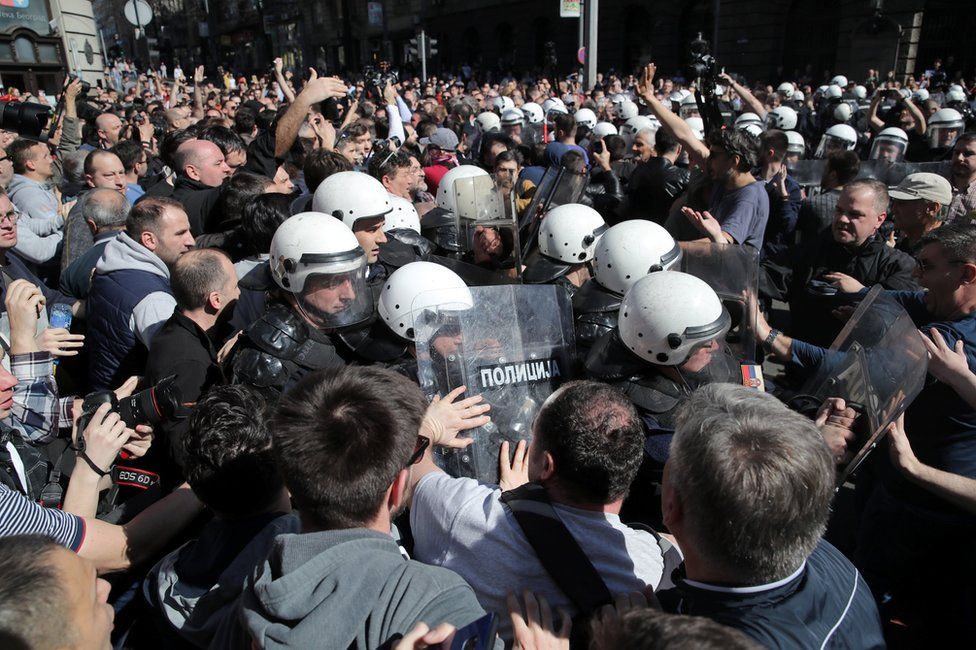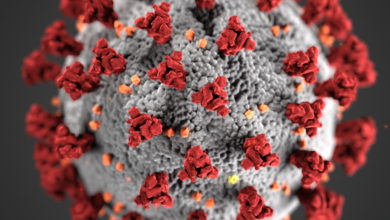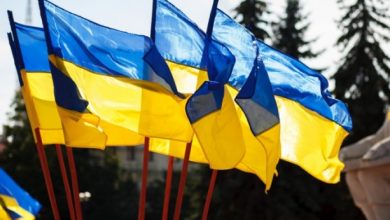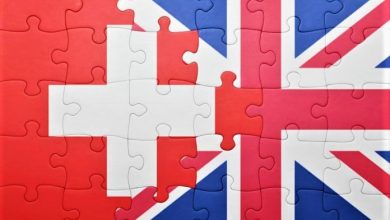The 2020 Legislative Election in Serbia
SNS Triumph and the Failure of the Election Boycott

On the 21st of June, Serbian voters were called to renew their Parliament (Narodna Skupština, National Assembly). This election took place in a unique context; after more than two years of protest against the government of incumbent President Aleksandar Vučić, leader of the conservative party, the Serbian Progressive Party (Srpska Naprenda Stranka) which has been in power since 2012. Elections were supposed to take place in April of 2020 but were delayed because of the Covid-19 pandemic.
The result of this election turned out to be a truly remarkable one. Aleksandar Vučić’s government now holds a supermajority in Parliament, something truly unprecedented, never even seen during Slobodan Milošević dictatorial presidency between 1992 and 2000.
Nonetheless, one must not forget another important aspect of this election: most opposition parties boycotted the election. They claimed that the situation in Serbia was in no way suitable to ensure free and fair elections.
Results of the election and its issues

The turnout of the election came in at 48% (compared to 56% in 2016.), the boycott most certainly can explain this.
The results:
- SNS (Serbian Progressive Party): 189 seats
- SPS (Socialist Party of Serbia): 32 seats
- SPAS (Serbian Patriotic Alliance): 12 seats
- VMSZ (Alliance of Vojvodina Hungarians): 9 seats
- SPP (Justice and Reconciliation Party): 3 seats
- PVD (Party for Democratic Action): 3 seats
- SDA S (Party for Democratic Action of Sandžak): 3 seats
Minus the SPAS, all the parties represented in the Parliament support the SNS Government. The second party with most seats, the Socialist Party of Serbia, is the party founded by Slobodan Milošević and has long been an ally of the SNS since the foundation of the latter in 2012. With the exception of the SPAS, the rest of the parties in the Assembly are minority parties. Current Prime Minister Ana Brnabić (SNS) will keep her job.
Aleksandar Vučić celebrated the SNS victory in Belgrade, calling it a “Unique time in history”. Unique indeed, since it is the first time that no opposition parties are represented. The main opposition block, the Alliance for Serbia (Savez za Srbiju, Szs), led by the Democratic Party (Demokratska Stranka) boycotted the election as a whole, claiming it was impossible to hold free and fair elections in the country. With none of the parties that make up the Alliance standing in the election, and since none of the independent parties reached the 3% threshold, the Serbian government can effectively pass whatever legislation it wants without any sort of opposition. The SzS was a broadchurch alliance, as the right-wing nationalist Dveri was also a member.
According to several reports, rigging happened in this election. Pressure was put on voters in some localities and cases of “carousel voting” were reported (driving voters to several polling stations so that they can vote multiple times) in Zrenjanin, Vojvodina. It is reported that vote-buying also happened, as in previous elections. Some people claimed they received threats, including risk of losing their job if they didn’t vote for the SNS. This is said to be a common occurrence for employees of various businesses or workers at any firm owned by oligarchs favourable to the SNS.
Understanding the reasons and the repercussions of the “Bojkot”
Serbia has been the stage of significant protests against the SNS and the President since 2018. The country has been led by the same party for 8 years now. During this time, Serbia has seen the erosion of basic democratic rights, freedom of speech, and freedom of the press. Independent news outlets are constantly harassed both by bigger, state-owned ones (most mediatic platforms are now the property of the SNS) and by the Government itself. The Government led significant cuts to subsidies and threatened some dissenting journalists with legal repercussions. The 2017 presidential election is one of the most striking examples of this trend. Aleksandar Vučić dominated in terms of media coverage while other candidates remained voiceless. In local elections, the SNS relied on local thugs to pressure people to vote for them as well as physically threaten opposition candidates.
After Vučić’s victory in 2017, the situation deteriorated, ultimately leading to the protests in 2018, which have not stopped. The demands were the same all along. More democracy and the end of the iron fist rule of the SNS. The Europhile core of Serbia, which is supported by the majority of young Serbs, remains opposed to the Government-led European integration. They claim that the government doesn’t care about core European values. While Serbia’s still divided on the subject of European Integration, the European flag was often waved during the protest.

By late 2019, most opposition parties had already declared that they would not stand in the election as none of the protesters’ demands were met. The boycott meant that on election day, most of the opposition’s militants were nowhere to be seen. In previous legislative elections, a lot of opposition militants would be out in the streets and at polling stations, to make sure no rigging was taking place. A lot of them were also electoral controllers and assessors.
None of this happened on the 21st of June, meaning that the SNS was able to freely cheat, intimidate, and ultimately rig the results. The main objective of the boycott was to make the results seem illegitimate and to expose a rotten system. While it may be true that the election’s results are de facto illegitimate for people supporting the opposition, it seems that the boycott didn’t achieve much else. One could go as far as to say that it simply preached to the converted.
The immediate result is that the Serbian Parliament has no opposition to SNS and their policies. Most of the opposition prominent figures are now irrelevant and powerless. This sets Serbia on a dangerous new path. Even during the worst times of the dictatorship, some people stood against Slobodan Milošević, risking their lives in the name of democracy.
The boycott, at least in the short-term, will certainly damage Serbia’s democratic institutions. The country may actually see a decrease in political activism, with less people getting actively involved. This will certainly be a painful loss for Serbia. Serbian political activism resurged as a result of the 2018 protests after years of political inertia. Unfortunately, it seemed to implode when most parties and organizations supporting the protests disagreed on what to do with the upcoming elections. If the parties composing the SzS decided to boycott the election, other formations decided to run, thus creating a divide in a pretty previously much-united front. This quarrel obviously benefitted Aleksandar Vučić’s government.
What’s next?

The SNS did officially “regret” that none of the main opposition parties stood in the election. Fewer ballots and lower turnout ultimately meant that it was easier for a government to cheat by ballot-box stuffing for instance, especially since most of assessors and electoral controllers roles were held by SNS affiliated people. VOICE (Vojvodina’s Research and Analysis Centre) reported numerous irregularities.
The Serbian government will now probably push forward to resolve the Kosovo question. Aleksandar Vučić will meet Trump and Hashim Thaçi, the Kosovar president on the 27th of June. With no direct opposition, the government will have no troubles negotiating its vision of the deal without anyone criticising its”land-swap” plan.
We can also expect the tighter links between Serbia and China. Over the past 2 years, the Serbian government has intensified its pro-Beijing rhetoric, claiming for instance that the PRC is the main contributor to Serbia’s foreign aid. Even though China delivered less than 7 million euros since 2009, against the European Union’s more than 1.819 billion euros contribution over the same time period.

On October 5th, Serbia will celebrate the 20th anniversary of the Bulldozer Revolution. 20 years ago on that day, people raised against a dictator after a decade of war, tensions, and repressive policies. The energy that drove this Revolution needs to be remembered and actualised in today’s Serbia (though important to notice that some ultranationalists took part in the Revolution as well). The Bulldozer Revolution was the inception of all Serbian’s XXI century history, everything that happened led to this very precise situation. This country has suffered a lot from autocracy, and it’s not the time for opponents to let go. It is time to keep the struggle going and remember the fight of people that wanted to make the country better and who succeeded, at least for a short while.
“The spirit of rebellion must live in Serbia, only then will we know we are alive and not the servants of a dictator.” -Zoran Đinđić





![Photo of [OPINION] A Europe of Regions Makes no Sense](https://mycountryeurope.com/wp-content/uploads/2018/04/ggg-390x220.jpg)